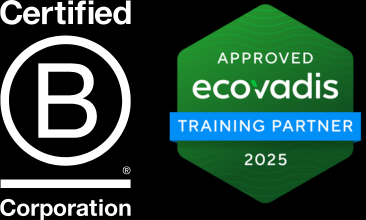Businesses recognise that, in a world grappling with complex social and environmental challenges, they must engage with stakeholders to identify and alleviate any negative impacts of their operations on these groups. This is key to maintaining responsible and sustainable business practices. Stakeholder engagement is also vital to decision-making, strategy development, materiality assessment, human rights due diligence, and reporting.
Yet, despite its importance, the engagement is often reduced to reactive or sporadic outreach, missing the depth of stakeholder insights needed for trust-building and informed decision-making.
The shortcomings of current stakeholder engagement
When it comes to environmental and social responsibility, many companies approach their stakeholders through questionnaires. However, while questionnaires are valuable tools for gathering targeted data, they have limitations as a standalone method. Questionnaires often introduce new concepts without sufficient context or previous education. If not carefully designed, they may fail to reveal gaps in understanding or uncover potential risks, negative impacts, and areas of concern for stakeholders that could significantly influence corporate strategies.
Accenture's findings illustrate a poignant example of the pitfalls of such engagement. They highlight the significant discrepancies between what corporations do and what stakeholders want. This "consensus gap" demonstrates how shallow engagement practices can lead companies to misjudge their performance and impact, undermining their sustainability efforts and potentially leading to financial damage.

The essential role of stakeholder engagement in business strategy
At its core, stakeholder engagement is about building and maintaining trust with diverse stakeholders. It's not just a tool for crisis management or a checkbox in corporate responsibility efforts; it is a strategic imperative that drives sustainable business success.
Engaging with stakeholders allows a company to gather diverse perspectives, anticipate potential challenges, adapt to external changes more efficiently, and innovate through collaboration. The ultimate goal is to engage all the stakeholders it impacts and align the company’s operations and objectives with their needs and expectations to create shared and sustained value (see also the Davos Manifesto 2020).
The Organisation for Economic Cooperation and Development (OECD) provides a robust framework encouraging businesses to embrace deep stakeholder engagement as a core element of responsible practices. This means prioritising relevant stakeholders whose rights or interests could be affected by the company's operations, products, or services. It also means establishing two-way, ongoing communication that includes interactive elements and is timely, accessible, and safe for all involved, especially those in vulnerable or marginalised positions.
The benefits are numerous: companies can mitigate risks, discover innovative opportunities that align with societal needs, enhance their reputation, foster customer loyalty, increase employee satisfaction, and achieve sustainable, long-term growth.

Source: OECD Due Diligence Guidance for Meaningful Stakeholder Engagement in the Extractive Sector
How to improve stakeholder engagement? Practical steps toward more effective practices
In practice, meaningful dialogue requires a shift from reactive, one-way approaches to a proactive, integrated process, from simply listening to concerns to incorporating stakeholder insights into the company's core strategic functions. That means, for example, reevaluating how projects impact local communities or reassessing the environmental implications of business operations. Companies must prioritise engagements based on the severity of potential impacts, ensuring that those most affected have a say in decision-making.
- Clarity and focus: To ensure you gather actionable insights, define clear goals for engagement and design targeted questions. What information do you genuinely need, and how can questions uncover it? Set clear expectations about the scope of the engagement, potential outcomes, and timelines for action.
- Capabilities: Develop the internal skills, processes, and culture to manage stakeholder relationships effectively over time. This includes the ability to collect, analyse, and respond to diverse stakeholder perspectives and educate stakeholders about the issues you want to discuss with them.
- Adequate stakeholder representation: Ensuring inclusivity in engagement practices enhances the quality of unbiased feedback and builds trust among traditionally underrepresented groups.
- Diverse platforms: Use various channels and approaches to reach different groups of stakeholders, ensuring inclusivity and accessibility. This can include surveys, interviews, focus groups and workshops, partnerships with NGOs, online forums, etc.
- In-depth exploration: Use stakeholder interactions strategically to uncover potential risks, negative impacts, and areas of stakeholder concern. Focus on eliciting deeper insights and ensure you tailor your approach according to the group's knowledge, expertise and characteristics.
- Step out of your comfort zone: Engage with stakeholder groups with critical perspectives, even if their feedback may be challenging.
- Act on feedback: Stakeholders are more likely to engage sincerely and continuously if they see that their input has a tangible impact on the company’s decisions and practices.
- Ongoing relationship: Avoid transactional approaches and one-off engagements and focus on creating shared value. Stakeholder engagement is the foundation for a continuous, mutually beneficial relationship.
From checkboxes to collaboration: the future of stakeholder engagement
The evolution from minimal compliance to proactive stakeholder involvement reflects a mature, responsible business approach. It strengthens businesses' resilience, equips them to navigate regulatory and environmental challenges better, and aligns them more closely with the communities and environments they impact. As such, meaningful stakeholder engagement is not just a regulatory requirement but a fundamental component of modern business strategy, integral to achieving long-term success and sustainability.
*A stakeholder is someone who affects or is affected by a company’s operations, activities, products, or services and can be either inside or outside the company. Examples include employees, customers, users, consumers, suppliers, business partners, investors, trade unions, civil society organisations, policymakers, regulators, and the communities impacted by operations.
If you need help unearthing valuable stakeholder insights that will drive meaningful change in your organisation, contact us at info@flagshipimpact.com. We can provide comprehensive frameworks for stakeholder engagement that align with your sustainability goals, design effective communication strategies, or support you in integrating stakeholder feedback into your strategic decision-making.


